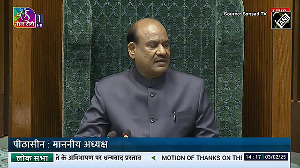Although the United States has continued to be the main locomotive for global growth and its economy is again expected to outperform other G-7 members, the challenge is to safeguard the outlook from the considerable uncertainties and risks, particularly against the background of looming demographic challenges, the IMF said.
"A record-low household saving rate and a large federal fiscal deficit are being supported by unprecedented borrowing from foreigners and domestic firms," it observed.
The need of the hour, it said, is to support the adjustment by stronger US national saving to avoid a burden falling on investment and growth, both in America and abroad.
Moreover, there will be limits to the global demand for US assets and "there is a risk that an abrupt and disorderly shift in investor preferences could have a significant adverse effect on interest rates and global capital markets."
Expenditure discipline, it said, will be an essential part of any deficit reduction but tax reform should also play a role in supporting fiscal sustainability.
IMF lauded Bush Administration's proposals to reduce agricultural subsidies as well as plans to offer and elicit stronger commitments for liberalisation in services.
"At the same time, there was need to ensure that bilateral free trade agreements complement the multilateral framework so as to minimise the potential costs of regionalism and to achieve significant increases in market access, particularly for agricultural products".






 © 2025
© 2025